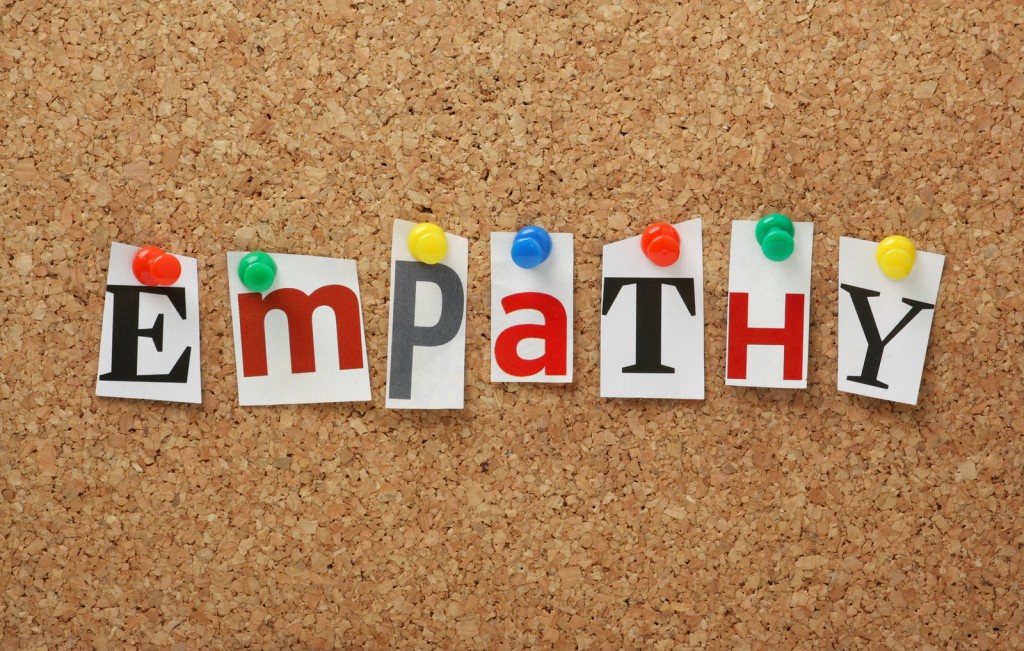Empathy might seem like a squishy, vaguely liberal word — a sentimental virtue of minor importance. But the more we learn from neuroscience and psychology, the more it appears that much of human social and economic life, not to mention individual health, fundamentally relies on it. Which makes the rise of inequality — something that threatens empathy — all the more troubling.
The term empathy conflates two separate but equally important human capacities. The first is simply the ability to know that other beings have distinct minds, agendas, and points of view, and to imagine what these are. Psychologists call this cognitive empathy, or theory of mind. Cognitive empathy is morally neutral: A doctor needs it in order to have good bedside manner; a con artist needs it to take advantage of his mark.
The second capacity is known as emotional empathy, which refers to our tendency to feel moved in response to someone else’s pain and distress — to care about these differences in experience. It’s thanks to this capacity that societies throughout the world exhibit some variation of the Golden Rule. Emotional empathy is, in other words, the very foundation of morality.
The less trust and empathy a country has among its citizens, the less efficiently its economy works, and the more it has to rely on regulation, policing, and other external measures of enforcement.
Long before neuroscientists began to uncover the biological roots of empathy, the 18th-century Scottish economist Adam Smith made the following observation about what happens when humans observe an act of violence: “When we see a stroke aimed and just ready to fall upon the leg or arm of another person, we naturally shrink and draw back our leg or our own arm; and when it does fall, we feel it in some measure, and are hurt by it as well as the sufferer.”
Smith suggested — and now neuroscience has confirmed — that these echoes of other people’s sensations are the basis of compassion. In the brain, mirror neurons simulate the experiences of other people, physically and emotionally. This capacity starts developing in infancy, as newborns begin to mimic facial expressions. This early mimicry lays down the wiring for cognitive empathy.
Newborns will also cry when they hear the cries of other babies, because they don’t initially have the capacity to separate their own distress from that of the others. This confoundment of feeling is at the root of emotional empathy. (In the beginning, we really do feel for other people.) Eventually we learn to tell self from other, but the fellow-feeling persists. By kindergarten, children will often try to comfort adults who seem upset.
But empathy isn’t just a vestige of some infantile dream-state; it’s a crucial part of how we regulate our responses to stress. In early life, babies cannot control their stress responses and rely entirely on parents and caregivers to soothe them. Empathy grows and develops as children are nurtured and learn that other people will try to ease their pain. Over time, we may learn other ways to regulate our tantrums, but even for adults, empathic connection and support are the best antidotes to trauma and stress. In fact, if you take away this foundation of early nurturing, a person’s resilience can break down in all sorts of ways. The more empathy deprived a child’s early existence is — the more trauma, abuse, neglect, or social isolation he endures — the more at risk he will later be for heart disease, diabetes, addictions, obesity, and mental illness.
Empathy is also crucial for the smooth functioning of social, political, and economic life, in large part because it is so closely related to trust. The less trust and empathy a country has among its citizens, the less efficiently its economy works, and the more it has to rely on regulation, policing, and other external measures of enforcement.
All this makes the rise of inequality especially frightening, because inequality interferes directly with empathy. It creates greater social distance between the rich and the rest — and the less interaction you have with people unlike yourself, the less empathy you tend to have for them. Among the downwardly mobile, the pervasive fear of diminished opportunities pushes people to become more competitive and less cooperative. And the increased stress on parents makes them less responsive to their children, harming their ability to nurture the capacity for empathy in the future.
We may find ourselves, then, at a worrying inflection point. Recent studies suggest that over the long course of history, the scope of human empathy has increased, as things like violence and racism have receded. It would be a shame to see the wave start to roll back.

